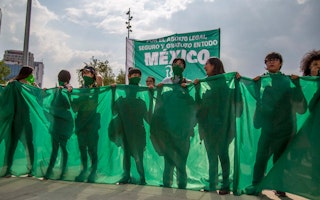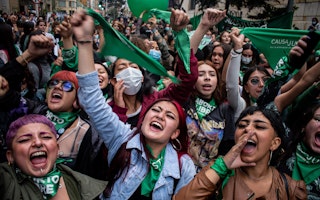New Fund to Advance Women’s Political Leadership
By Binaifer Nowrojee
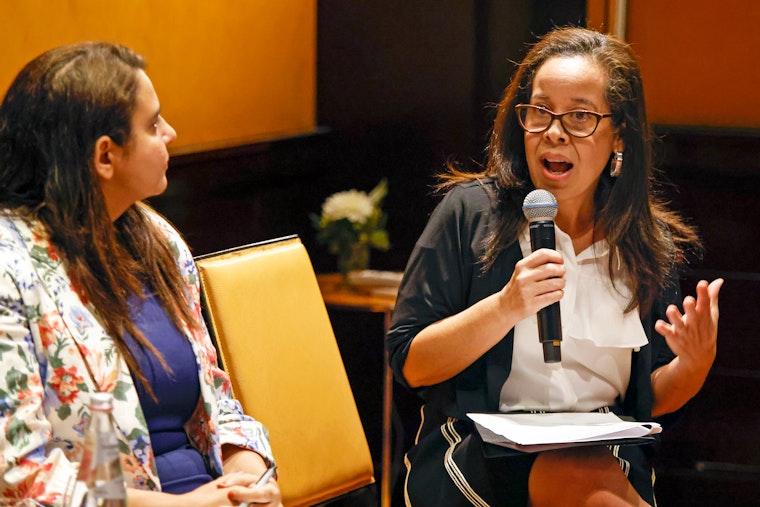
Suyen Barahona, as president of the Nicaraguan Unión Democrática Renovadora (UNAMOS), was kidnapped and sent to the country’s infamously grim El Chipote prison for 606 days. She was jailed solely for her political involvement and human rights activism, a victim of the crackdown carried out by President Daniel Ortega’s government prior to national elections. Along with three of her colleagues, she was tortured, barred from communicating with her four-year-old son, and kept in solitary confinement. When Barahona was finally released earlier this year, she was deported to the United States and illegally stripped of her nationality.
Barahona’s harrowing story echoes those of hundreds of other women imprisoned in El Chipote who were singled out for particularly vicious treatment. In the face of such adversity, women such as Barahona remain committed to promoting democracy and empowering women politically around the world.
Amidst this reality, the Open Society Foundations is proud to announce the new Women’s Political Leadership Fund, with Suyen Barahona at the helm, as part of its $100 million commitment to women’s political leadership. Under Barahona’s direction, the Fund will spend the next five years supporting these women facing myriad challenges—to help ensure bold, transformative women political leaders become the norm around the world.
Why are such feminist leaders considered to be so threatening? Because they are calling for transformative societal changes that would dismantle longstanding systems of discrimination and oppression. They are awakening strong public support from historically marginalized social movements that are playing a more central role in reimagining democracy where it is most sorely needed. In 2022, even without the support of traditional political parties, a record number of Black feminist women ran in the Brazilian election. Just last month, Polish women were instrumental in voting out the far-right Law and Justice Party. Together, they threaten the status quo—and the backlash against their rising voices is swift and often brutal.
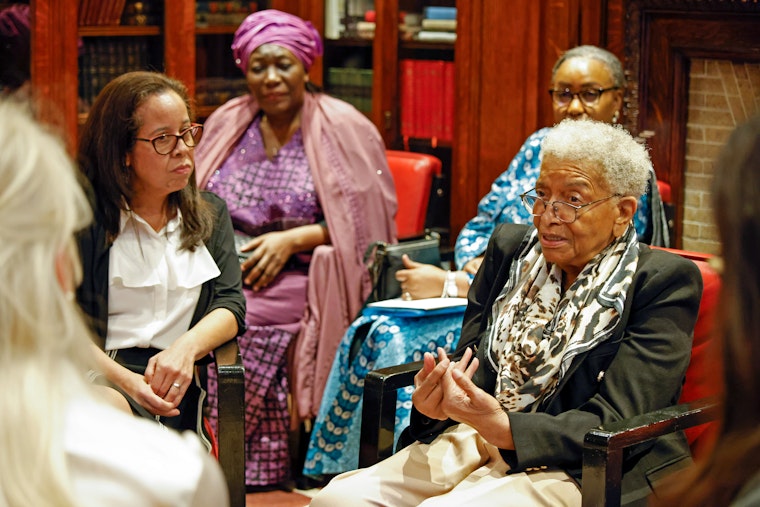
The personal cost is especially high. Not only are these women leaders subject to isolation and limited opportunities for leadership, but many encounter threats of violence and direct attacks such as the ones Barahona and other leaders suffer. Brazilian politician Marielle Franco and British Member of Parliament Jo Cox were both assassinated for their views in recent years. Across the world, state-sponsored disinformation campaigns suppress and intimidate female advocates who champion democracy and equality. Just this year, both Scottish First Minister Nicola Sturgeon and New Zealand Prime Minister Jacinda Arden stepped down, citing burnout and exhaustion.
We know that greater representation of women in politics can help address many of the challenges we now face around the world. A report from the Women Political Leaders network found that significant representation of women in political leadership improves a country’s overall progress, particularly in ensuring economic equality.
But gender parity alone is not the answer. In the last decade, we’ve also seen a surge of women leaders from far-right movements taking power, especially in Europe and the U.S. Leaders like Italian Prime Minister Giorgia Meloni and Hungarian President Katalin Novák are thought to “soften” the images of populist parties and broaden their appeal to female voters who are now casting ballots for such parties in greater numbers.
This important distinction is at the core of the Women’s Political Leadership Fund, which will go beyond gender parity to advance feminism, equity, and democracy when and where they're most needed. With a $25 million commitment from the Open Society Foundations, the Fund will identify and support women political leaders who are fighting for human rights, equality, and democratic values, and help to strengthen their voice and political power. We will support these feminist political leaders at every stage, helping them to enter politics, succeed in governance, and sustain their influence in formal electoral and other political settings. The Fund will connect them with one another to provide support networks and strategies to respond to, overcome, and end violence against women in politics.
A gender-just future cannot become a reality without support for the courageous and transformative feminist leaders around the world who are making this happen.
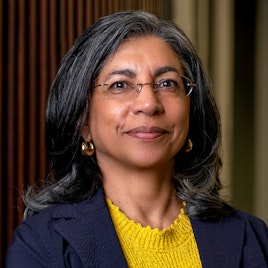
Binaifer Nowrojee is the president of the Open Society Foundations.
